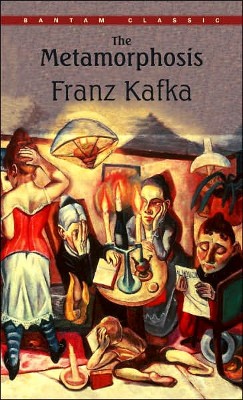
Mound or Moon?
Inés of My Soul: "The soldiers took as many Indian women as they wanted, some by force and others who were willing, but surely they must have missed words of love whispered in Spanish. Men want what they do not have have. I was the only Spanish woman on the expedition, the captain general's concubine, visible, present, untouchable, and therefore desired. I have asked myself sometimes whether I was responsible for how Sebastián Romero, Lieutenant Núñez, and that boy Escobar behaved. I find no fault in myself other than being a woman, but it seems that is crime enough. We are blamed for men's lust, but does the sin not belong to the one who commits it? Why must I pay for another's lapse?
At the beginning of the expedition, I dressed as I always had in Plasencia--underskirts, corset, blouse, long skirts, head covering, shawl, dress shoes--but very soon I had to adapt to the circumstances. You cannot ride a thousand leagues sidesaddle without breaking your back; I had to straddle my horse. I obtained some men's breeches and boots, put aside the whalebone corset that no woman can abide, and soon abandoned my head covering and braided my hair the way Indian women do; it was too heavy on my neck. I did not ever, however, wear a low-cut blouse or allow familiarities from the soldiers. During encounters with bellicose Indians, I put on a helmet and a light leather breastplate and leg protectors Pedro had ordered made for me. Otherwise, I would have died of arrow wounds in the first portion of the journey. If that inflamed the desire of Escobar and other men on the expedition, I cannot understand how the male mind functions. I have heard Francisco de Aguirre say that males think only of eating, fornicating, and killing--it was one of his favorite sayings, although in the case of the human animal that is not the whole truth: they also think of power. I refuse to agree with Aguirre, despite the many weaknesses I have observed in men. They are not all alike.
Our soldiers talked about women a lot, especially when we had to camp for a few days and they had nothing to do but stand their turn at guard, and wait. They exchanged impressions about the Indian women, boasted of their conquests--rapes--and enviously recounted the exploits of the mythic Aguirre. Unfortunately, my name frequently appeared in those conversations; it was said that I was insatiable, that I rode like a man so I would be excited by the horse, and that I always wore trousers beneath my skirts. That last part was true; I could not ride astride with with naked thighs (142).
"When Agnes was sixteen, she visited some friends of her parents; in the middle of the night she menstruated and bloodied the sheets. When she noticed it early next morning, she was seized by panic. She slipped stealthily into the bathroom, got a piece of soap, and began to rub the sheet with a wet cloth; the spot not only grew bigger but soiled the mattress as well; she was mortally ashamed.
Why was she so ashamed? Don't all women suffer from monthly bleeding? Did she invent women's genitals? Was she responsible for them? No. But responsiblity has nothing to do with shame. If she had spilled some ink, and ruined her hosts' carpet and tablecloth, it would have been unpleasant and painful, but she wouldn't have felt shame. The basis of shame is not some personal mistake of ours, but the ignominy, the humiliation we feel that we must be what we are without any choice in the matter, and that this humiliation is seen by everyone" (248).
"Larry put down the phone. Downstairs he found Beryl at the table with the newspaper, her coffee and a pair of scissors. Pages were spread over the wineglasses and dinner plates.
He'd stopped commenting on this oddness of hers. She said the news clippings she sent to friends were a perfectly reasonable way to correspond. There were a thousand things to clip and they all said something about the way she felt. He watched her read and cut. She wore half-glasses and worked the scissors grimly. She believed these were personal forms of expression. She believed no message she could send a friend was more intimate and telling than a story in the paper about a violent act, a crazed man, a bombed Negro home, a Buddhist monk who sets himself on fire. Because these are things that tell us how we live" (Libra, Don Delillo, 261).
The heart of a woman goes forth with the dawn
As a lone bird, soft winging, so restlessly on;
Afar o'er life's turrets and vales does it roam
In the wake of those echoes the heart calls home.
The heart of a woman falls back with the night,
And enters some alien cage in its plight,
And tires to forget it has dreamed of the stars
While it breaks, breaks, breaks, on the sheltering bars
Georgia Douglas Johnson





17 comments:
http://books.google.com/books?id=_q0zAQAAIAAJ&pg=PA49&dq=Whatever+goes+to+the+tilth+of+me+it+shall+be+you!+You+my+rich+blood!+your+milky+stream+pale+strippings+of+my+life!+Breast+that+presses+against+other+breasts+it+shall+be+you!&hl=en&sa=X&ei=39OXU-LYGI-VyASp1IC4DA&ved=0CCwQ6AEwAg#v=onepage&q=Whatever%20goes%20to%20the%20tilth%20of%20me%20it%20shall%20be%20you!%20You%20my%20rich%20blood!%20your%20milky%20stream%20pale%20strippings%20of%20my%20life!%20Breast%20that%20presses%20against%20other%20breasts%20it%20shall%20be%20you!&f=false
Henry Green's Loving (1945):
"Then the dark head was altogether gone. But there were two humps of body, turf over graves under those pink bedclothes. And it was at this moment Mrs. Jack jumped as if she had been pinched. Not properly awake she sat straight up. She was nude. Then no doubt remembering she said very quick, 'Oh Edith it's you it's quite all right I'll ring.' On which she must have recognized that she was naked. With a sort of cry and crossing her loving arms over that great brilliant upper part of her her on which, wayward, were two dark upraised dry wounds shaking on her, she also slid entirely underneath" (76).
Nothing escapes your notice. This is how it complicates the scripts for me, when the desire of every man and woman is to be inside of someone, and to reversibly contain the other. Whatever the mechanics, there is the ceremony to reharvest newly created answers. In this way, I cannot make the distinction among mannikins.
I do not perceive that it is illegitimate for two women to want the normative experience of motherhood, but it is impugned (less so, today) by the belief that it is a way to compensate the lack, of sexual pleasure as it is shackled to biology. Furthermore, I experience the guilt of wanting to understand that visceral phenomenon, when I want that for you, too.
In a sense, I feel that it is the only way to be reconciled with the body, and I would not risk coming to you unfinished if I did not sense the steady retreat of time. For me, the only sadness greater than never seeing you again will be to lose you, after years together, and not having another person sharing that. People cleave off pieces of each other, perhaps unconsciously, for that moment of loss.
And I thought about that today, the management of the shared ferrous mine. As a younger person, I was terrified of embarrassing myself to the point of starvation, where the symptom went away for months. Then I gathered the common sense that this was robbing my skeleton, and got over it.
I am not slavish to Jeanette Winterson's writing, but I recall an explicit image of the narrator describing Louise's gun going off in her face.
http://science.nasa.gov/science-news/science-at-nasa/2014/27mar_tetrad/
http://www.space.com/30218-perseid-meteor-shower-photos-2015.html
https://www.youtube.com/watch?v=aOWYdX50qQc
"Those, said Sasan, when she asked, are tge Mountains of the Moon.
[...]
It was a palace built of glass in the heart of the mountain. They were in a forest of tall glass tubes with branching arms, arranged in colonnades, thickets, circular balustrades. There was a delicate sound in the air, of glass bells, tubular bells, distant waterfalls, or so it seemed. All the glass pillars were hollow, and were filled with columns of liquid - wine-coloured, sapphire, amber, emerald and quicksilver. If you touched the finer ones, the liquid shot up, and then steadied." - A.S. Byatt's "Cold" from Elementals (1992)
This is Exercise 51, after Exercise 50, for the Teresa, My Love I owe.
http://www.4physics.com/phy_demo/Galileo_thermometer/galileo-thermometer-b.html
https://schabrieres.wordpress.com/2015/08/14/alejandra-pizarnik-demeures-1965/
16
you have built your house
you have feathered your birds
you have beaten against the wind
with your own bones
you have finished on your own
what no one ever started
http://www.uglyducklingpresse.org/catalog/browse/item/?pubID=312
https://books.google.com/books?id=lTI5AAAAQBAJ&lpg=PA164&dq=zahor%20hebrew&pg=PA164#v=onepage&q=zahor%20hebrew&f=false
https://books.google.com/books?id=3KK7JHqNrRsC&lpg=PA389&dq=Diana's%20Tree%20Octavio%20Paz&pg=PA389#v=onepage&q=Diana's%20Tree%20Octavio%20Paz&f=false
Yvette Siegert's interpretation of Alejandra Pizarnik's Árbol de Diana y Otros Poemas (1962) as Diana's Tree (2014, 2018) is very disappointing because it is not presented as a bilingual text. I was furious for being duped by Ugly Duckling Presse for an impulse buy without the original text presented by the poet herself. One would think that a translator of her caliber would require a side-by-side text to accompany her translation. ND Books should do better with the collected works.
https://www.ndbooks.com/author/yvette-siegert/
An excerpt from Octavio Paz's introduction:
"Diana's Tree by Alejandra Pizarnik (Chem.): a verbal crystallization formed by the amalgamation of ardent insomnia and dazzling clarity in a solution of reality subjected to the highest temperatures. The product of this alloy contains no trace of lies. (Bot.): Diana's tree is transparent and gives no shade. It gives off its own light, brief and glimmering. It is native to the arid lands of the Americas, where the inhospitable climate, the inclement discourses and pontifications, and the general opacity of the sentient species, its neighbors, all serve to stimulate, through a well-documented phenomenon of compensation, the bioluminescent properties of this plant. It has no roots; its trunk is a column of slightly obsessive light; its leaves are small, each one covered with four or five of a phosphorescent script; and its petioles are elegant and aggressive, with jagged edges."
24.
(after a drawing by Wols)
these threads capture the shadows
and force them to account for the silence
these threads bind your sight to the sob
https://www.independent.co.uk/arts-entertainment/art/great-works/great-works-the-blue-phantom-1951-wols-73cm-x-60-cm-2359200.html
https://hyperallergic.com/129099/the-guile-of-wols-and-charline-von-heyl/
https://hirshhorn.si.edu/exhibitions/charline-von-heyl-snake-eyes/
In my opinion, this is the best rendition by Chan Marshall of Sandy Denny's song (1968), which was reprised by Judy Collins (1968).
https://www.youtube.com/watch?v=6vnuOVzXvV0
I am still waiting for a sign. To see you again.
Exercise 89.
Late entry. Thank you for reminding me.
https://1drv.ms/i/s!AsA4BY25Ql_1mXni1BF8r-hMYYqx
Exercise 91.
There was a point in 2023 when the vacuum sealed, and I stopped knowing anything about you. The fault is shared. Any thoughts?
"In the Tikunei Zohar (Hakdama 10b):'Beresheit is אהבה (love) and has small gematria of 13 like the Gematria of אהבה (love)..'[3]."
https://www.dafyomi.co.il/general/info/torahau/torah_numerology.php?d=19
Too deep to study here in one setting. I want to remember it, but I also feel ashamed appending it to this post. Thank you for helping me remember zahor from 2015.
Post a Comment